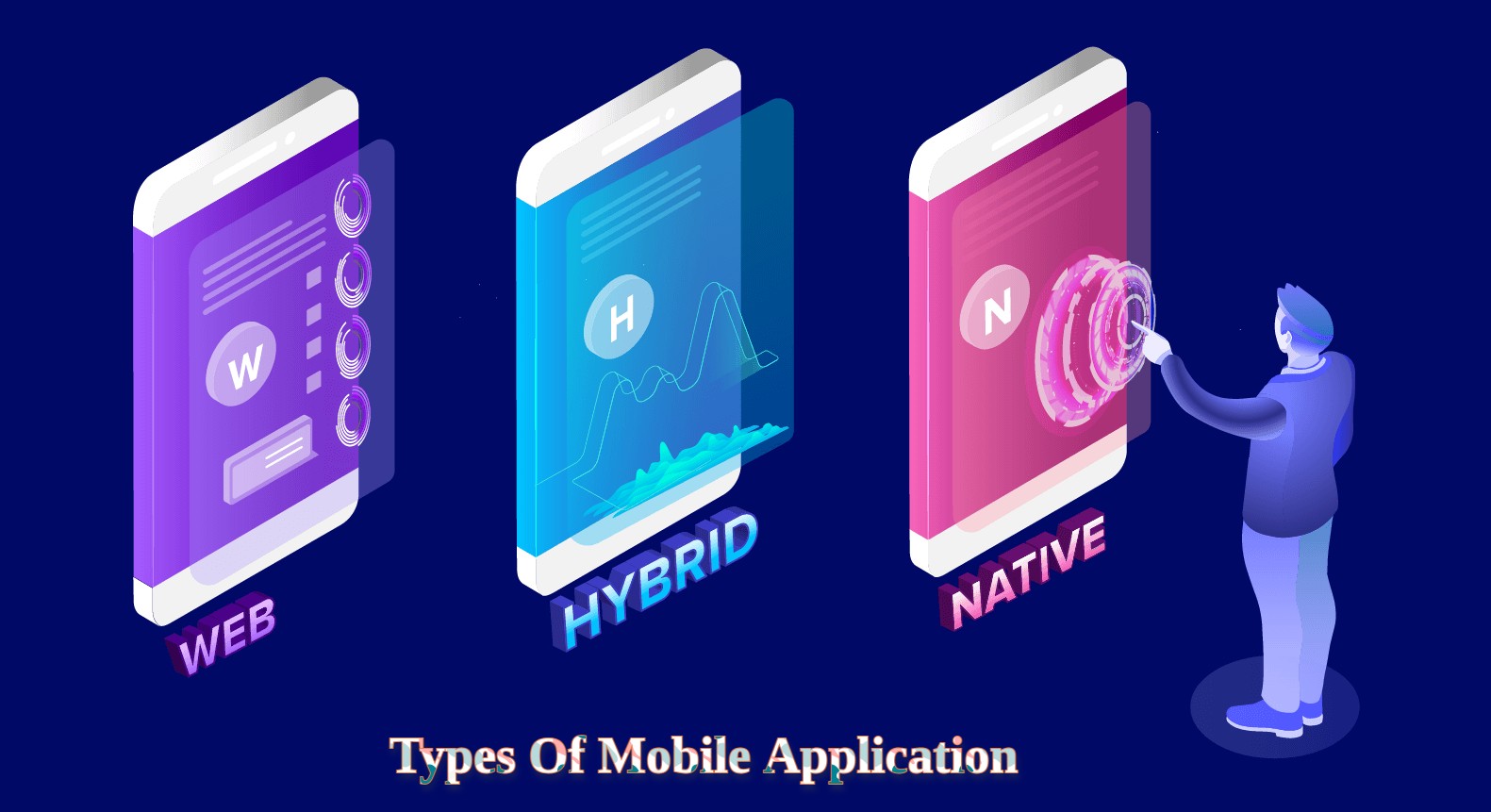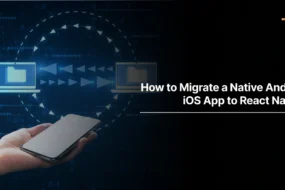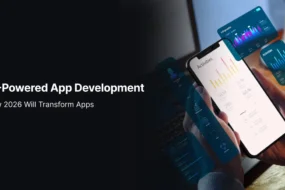- Home
- App Development
- 3 Types Of Mobile Applications ...

Without a doubt, mainly 3 Types Of Mobile Applications by technology. The first one is a Native App, Second One is Hybrid App and The third is Web App.
Above all, talking about mobile applications, the first things that come to mind are the apps like Whatsapp, Instagram, Swiggy, etc that we use in our everyday life.
Moreover, New devices are introduced to the market daily with innovative creations, indicating growing technology. The evolution of mobile application development technology with new devices made it comfortable. Creating software, especially for smartphones and digital assistants, is defined as mobile application development.
What Is Mobile Application?
A mobile application is a dynamic software specially designed for wireless computing devices like mobile, laptops, or tablets. Apps are small individual units with limited functionalities developed to provide users with a similar experience to those accessed on desktops. A mobile app can be for personal and professional use helping brands conduct business effectively. They are the perfect way to stay connected with millennial consumers on the go and cater to their evolving demands. It provides a sense of security and makes experiences more accessible and user-friendly.
In today’s digital era, the Mobile App Development market is at its peak, with more and more small, mid-sized, or large businesses following the mobile trends. Mobile apps like social networks and communication, lifestyle, daily-routine apps, medical and doctor apps, and nearby and restaurant apps are changing the new way we live our life. Today, a smartphone is at the forefront of everything we do, hear, and speak, it has become a world for millennial consumers.
In addition, There are various apps in the market like web apps, hybrid or native apps, and cross-platform apps. But what do these terms mean exactly? We introduce you to the difference between the major three types and, along the way, discuss their features, advantages, and disadvantages, to help you make an informed decision in your app-building project.
Types Of Mobile Application
So, you have finally decided that a mobile application is the way to go. But it doesn’t end with making the decision. If you want to build an app that would trend, you may want to address some of the questions before you start building a mobile app. And the first thing you may want to consider is which types of application you want to build.
Also, there are mainly 3 types of mobile applications. Did you know that currently there are 32 categories in the play store and around 24 in the iPhone app store? While this may seem overwhelming, it is critical to understand the different types of mobile applications for app development.
Native Apps

Native app development means creating a mobile application that is tailored to be dedicated to a specific platform like ios, or android.
Because native applications are built specifically for the operating system, they provide higher user engagement than hybrid apps. Native mobile apps generally perform and look better than their web-based counterparts, which must serve numerous platforms.
Furthermore, native mobile apps, and cameras, are not available via a mobile browser interface alone.
Native mobile apps, unlike websites and Web Applications, do not operate in the browser. They must be downloaded from a platform-specific app like appel’s app store and google play. Native applications are more complicated or behavioral. You may use the native capabilities of mobile operating systems to create a richer experience and implements app features.
| Also Read: Best Android App Development SDKs, Libraries, And Frameworks To Use In 2022
In addition, you can build an android application in Java or Kotlin while creating an ios app in Swift and objective-c. Those apps provide exceptional user experience since they’re usually high-performance. Because the visuals are tailored to the platform’s UX, the user experience is also improved.
Pros Of Native App:
Among the top technology advantages, you will find speed, work offline, and providing a recognizable look and feel, as well as the ability to maintain aspect ratios.
Cons Of Native App:
The biggest downsides of it there is the lengthy downloading process, no flexibility, expensive development & time- consuming development. They also require frequent upgrades.
App Build on Native App
- Spotify
- Soundcloud
Hybrid App

A hybrid app may be defined as an HTML5 web application within a native wrapper. This type of mobile app is written using CSS3, HTML5, and javascript. It is then compiled into native android, IOS, or then mobile platforms utilizing wrapper technologies. In other words, hybrid apps are pages wrapped in a mobile app.
Especially, the best part about these apps is that they can use on any device’s features and have built-in capabilities. As far as the web app part is concerned, hybrid apps depend on HTML provided in a browser embedded within the app. Developers built hybrid apps utilizing cross-plateform frameworks that include Xamarin, Ionic, React, and Sencha.
Moreover, it is in fact displaying web pages from a desktop website that is adapted to a webView display. The web content can either be displayed as soon as the app is opened or for certain parts of the app only.
Pros Of Hybrid App
- Combination of user experience with agile development and controlled costs
- Avoid the limitation of the apple app store
- Finding resources
- Resuming the code of the web app part
- Reducing development time and costs
Cons Of Hybrid App
- Limited user interface
- Dependency on the browser’s speed
- The difficulty or impossibility to explore the platform’s capacities in full
- Slower performance and transition between pages
App Build on Hybrid App
- Gmail
- Evernote
Web Apps

Last but not the least, mobile app work can be accessed from the internet browser window. It does not require any storage space or installation process to use the app. Mobile web apps adapt to various screen sizes and devices easily. The responsiveness and functionality of the web apps cloud easily be confused with a native app since both the native and web apps have almost the same features and responsive nature.
One of the major differences between the two is that native mobile apps can function both in the major difference between the two, is that online mode, whereas web apps require an active internet connection for them to work. Since these apps are not installed on the computer or your smartphone, there is no need for updating the web apps as they update themselves on the web-hosted servers.
Pros Of Web Apps
- Reduce business cost
- No installation needed
- Better reach as it can be accessed from anywhere
- Always up-to-date
Cons Of Web Apps
- Web apps fail to work when you are offline.
- A limited number of functionalities as compared to native apps
- It takes a longer time to develop
- Security risk
App Build on Hybrid App
Conclusion
Finally, the conclusion needs user-friendly programs, and businesses need tools to promote. Creating types of mobile app developments for smartphones is a good process that will always be in demand.
To better understand the 3 types of mobile application development and other product design, feel free to Contact Us asap for the greatest android application development services.
3 Types Of Mobile Applications You Need To Learn Now FAQ
What are the 3 types of mobile applications?
There are basic three types of mobile applications
- Native App
- Hybrid App
- Web App
What are the top most downloaded apps?
- Whats App
- Telegram
- Zoom
- Snapchat
- Spotify
- Youtube





